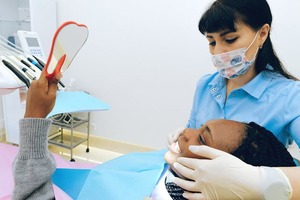From Restorative Dentistry to Implantology: Exploring Specialized Courses for Dentists
Body
Dentistry is a field that requires continuous learning and skill enhancement to keep up with the latest advancements in technology and techniques. As a dentist, it is essential to stay updated with the latest trends in the industry to provide the best possible care to your patients. Specialized courses offer a great opportunity for dentists to expand their knowledge and expertise in specific areas such as restorative dentistry and implantology.
Restorative Dentistry Courses
Restorative dentistry focuses on restoring the function and aesthetics of teeth that have been damaged due to decay, trauma, or other factors. Specialized courses in restorative dentistry cover topics such as dental fillings, crowns, bridges, and veneers. These courses provide dentists with the skills and knowledge needed to effectively restore and enhance the natural beauty of their patients' smiles.
Implantology Courses
Implantology is a rapidly growing field in dentistry that focuses on the placement and restoration of dental implants. Dental implants are a popular and effective solution for replacing missing teeth and restoring oral function. Specialized courses in implantology cover topics such as implant surgery, bone grafting, and implant prosthodontics. These courses equip dentists with the necessary skills to plan, place, and restore dental implants with precision and success.
Benefits of Specialized Courses
Participating in specialized dental courses in restorative dentistry and implantology offers several benefits to dentists. Firstly, these courses provide dentists with in-depth knowledge and hands-on experience in specific areas of dentistry, allowing them to enhance their skills and expertise. Secondly, specialized courses help dentists stay updated with the latest advancements and techniques in the field, ensuring that they provide the highest quality of care to their patients.
Choosing the Right Course
When considering specialized courses, it is essential for dentists to research and choose a course that aligns with their interests and career goals. Dentists should look for courses that are taught by experienced instructors and offer hands-on training opportunities. Additionally, dentists should consider the course curriculum, duration, and accreditation to ensure that they are investing their time and resources in a reputable and valuable program.
Conclusion
In conclusion, specialized courses in restorative dentistry and implantology play a crucial role in the professional development of dentists. By participating in these courses, dentists can enhance their skills, stay updated with the latest advancements, and provide the best possible care to their patients. It is important for dentists to choose the right course that aligns with their interests and career goals to maximize the benefits of specialized education in the field of dentistry.










Comments